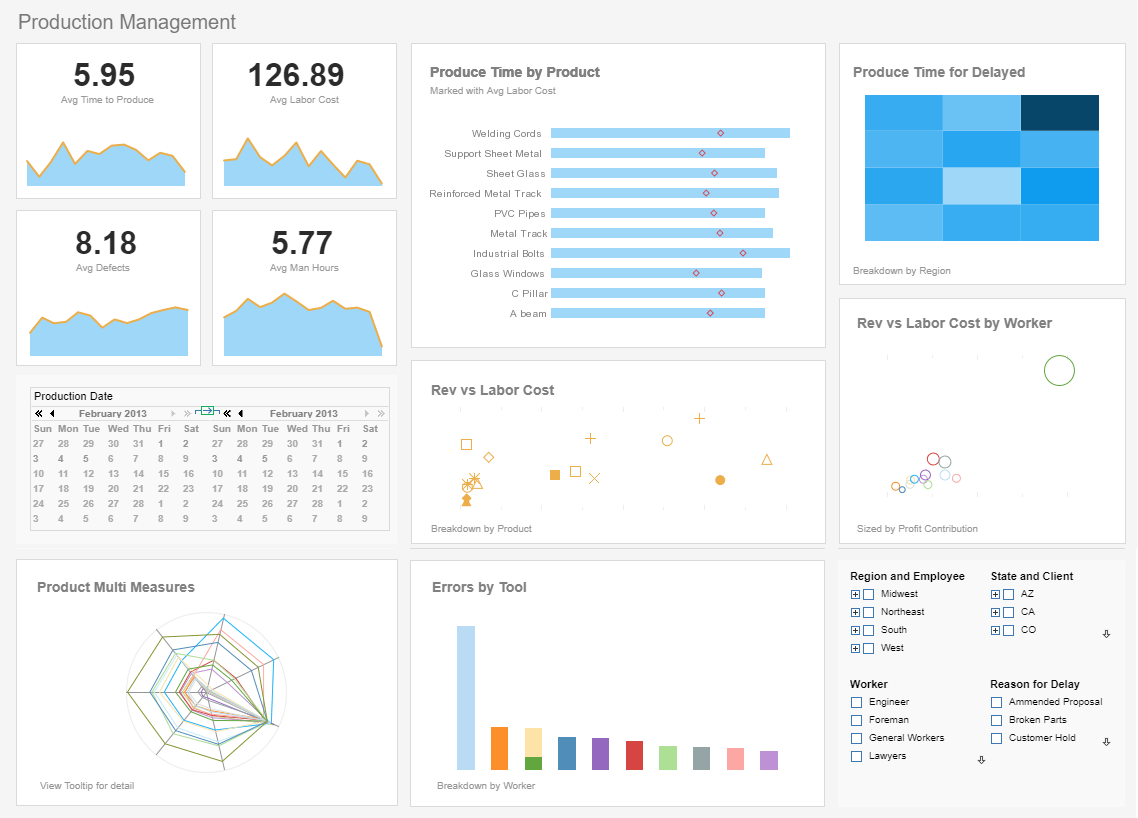InetSoft Podcast: An Analogy About Building Dashboards
This is the transcript of a podcast hosted by InetSoft on the topic of "Top Lessons About Dashboarding." The speaker is Abhishek Gupta, product manager at InetSoft.
Today’s podcast is about ‘Top Lessons About Dashboarding.’ I thought it would be fun to start out with an analogy that you like to make about building dashboards. Now, with all this talk about people wanting to try analytical dashboards, I give this analogy of how I have a dashboard in my car which takes up a huge amount of real estate, yet it has very little information. I have a tachometer, but I don’t have a stick shift, right? It is an automatic car. Why do I need a tachometer?
My oil gauge and temperature gauge might as well be painted on because they never move. And I look at my gas gauge once to see if I have enough gas. And I live in California so I don’t care how fast I am driving. I just drive fast. So I have this dashboard that is completely inactionable and unintelligent, yet it takes up the majority of my car.
What do dashboards need to have to be truly effective? When I take that analogy and place it in the business world and people say they want dashboards, I look at basi how you need to have information coming to the business user that is timely and relevant so they can actually do something about it.
| #1 Ranking: Read how InetSoft was rated #1 for user adoption in G2's user survey-based index | Read More |
Analytics Should Help Inform What to Do
It's not that I want to know what the event is. I want to know what should I do about the event. It needs to be customizable because not every business user looks at the same trigger point for the same events. And then they also have to be very flexible so that I can bring up my gauges as they pertain to my business of the day. I think the actionable part is especially important. It's no good just to see what you have been doing in the past. The ability to take some business course afterwards based on that knowledge is really where the value comes from. Clearly we can’t affect the past. We have to affect the future.
What are some common hurdles or pitfalls that people bump into with dashboards? The most common one is what building what we call the executive dthat’s very stale. It’s at a very high level. It is basically just like a PowerPoint slide that you look, at and you start to ignore it because it's not actionable. It's stale information.The other major mistake people make is thinking they can build a dashboard that is one-size-fits-all. They think that everyone runs their business the same way, and they want to see everything the same way. So, they set in hard code the trigger points as opposed to allow the users to customize them.
And then the other big mistake people make is having a very clumsy drilldown method. When I see something on my dashboard, I want to be able to click on it very easily and effectively and drilldown and see what's the real situation. What are my parameters that I can take action on, and what action should I be taking? I think as we put more information in front of more executives, and we do more by way of dashboarding, a lot of these dashboards become right time based or real time based. I think a lot of folks out there think that it probably puts a taxing burden on the information systems.
 |
Read the top 10 reasons for selecting InetSoft as your BI partner. |
Instantaneous Dashboards
I see it both ways because some people look at it and say, wow, it's going to put lot of tax on my information systems. Other people look it the other way and say, well, it's a dashboard. It's instantaneous. It must be getting the data very effectively and timely, and it's easy to do.
And what I see is that dashboards create more usage, CPU and disk utilization based on what triggers do I have and what should I do about it. But what they do is they remove all that wasted time of drilling down needless paths. So I think on average they will actually gain you performance and capability, but more importantly, they improve your productivity if designed correctly.
So the moral of that is if you deliver a smarter and better design it will actually tax the systems less because you are giving the user what they want perhaps on the first pass instead of the third or fifth. So let me go back to my original analogy. What do you want on your dashboard? I gave the analogy when I talked with a car manufacturer, and they said, so what do you want, and I said, I want a real time traffic monitor that tells me what's happening in the next mile and a half ahead so I know which lane to be in, and that’s exactly what I want.
When my idiot light on the gas gauge comes on, I don’t want to know how many miles, I want to know where the next gas station is. Tap it into my GPS system, make it not what is the event but what can I do about the event. And of course I would like to have the police radar detector built in as well.
